Results of the G20 Digital Economy Ministers Meeting
- Published:
Date:October 1, 2024
From September 11 to 16, State Minister for Digital Transformation Ishikawa visited Brazil to participate in the G20 Digital Economy Ministers Meeting. He held meetings with participating ministers.
The G20 Digital Economy Ministers Meeting is one of the ministerial meetings for the G20 Summit, which will be held on November 18 and 19. The meeting was attended by member countries and regions, as well as invited countries and relevant international organizations to discuss various issues related to the digital economy. Based on the discussion results, the meeting successfully adopted the Ministerial Declaration and the Annexes as the Outcome Document.
Ensuring trust and interoperability in data sharing is important for digital public infrastructure, one of this year's themes, and from this perspective, the importance of Data Free Flow with Trust (DFFT), which Japan proposed at the G20 OSAKA Summit in 2019, was reaffirmed in this year's Ministerial Declaration. In addition, State Minister for Digital Transformation Ishikawa held bilateral meetings with ministers and other representatives. of G20 member countries to confirm cooperation in the G20 and G7, and exchanged views on the promotion of the Institutional Arrangement for Partnership (hereinafter referred to as “the IAP") established under the OECD for the operationalization of DFFT, as well as on each country's initiatives for digital ID and digital government.
Details of the contents are as follows:
1. G20 Digital Economy Ministers Meeting
The G20 Digital Economy Ministers Meeting, under the Brazilian Presidency, was held in Maceió, on September 13 (Fri), and Mr. Ishikawa, State Minister for Digital Transformation, participated in the meeting. At the G20 Digital Economy Ministers Meeting, discussions were focused on the following 4 key themes, and based on the discussions held during the meeting, the Ministerial Declaration and the Annexes were adopted as the Outcome Document."
- Digital Inclusion, Universal and Meaningful Connectivity
- Digital Government and Inclusive Digital Public Infrastructure
- Integrity of Information Online and Trust in the Digital Economy
- Artificial Intelligence for Inclusive Sustainable Development and Inequality Reduction
The Ministry of Internal Affairs and Communications and the Ministry of Economy, Trade and Industry also participated in this meeting. In the discussions at this G20 meeting, the G20 members agreed that data sharing as a basis for digital public infrastructure, through interoperability, can unleash more inclusive public and private sectors. In this context, the G20 members reaffirmed the importance of enabling cross-border flow of data and DFFT. In response, State Minister Ishikawa stated that "in order to maintain the unity of the G20 in a digitalized world, it is important to continue discussions on trust in data and DFFT, an essential element of digital public infrastructure, while respecting various forms of data governance.”
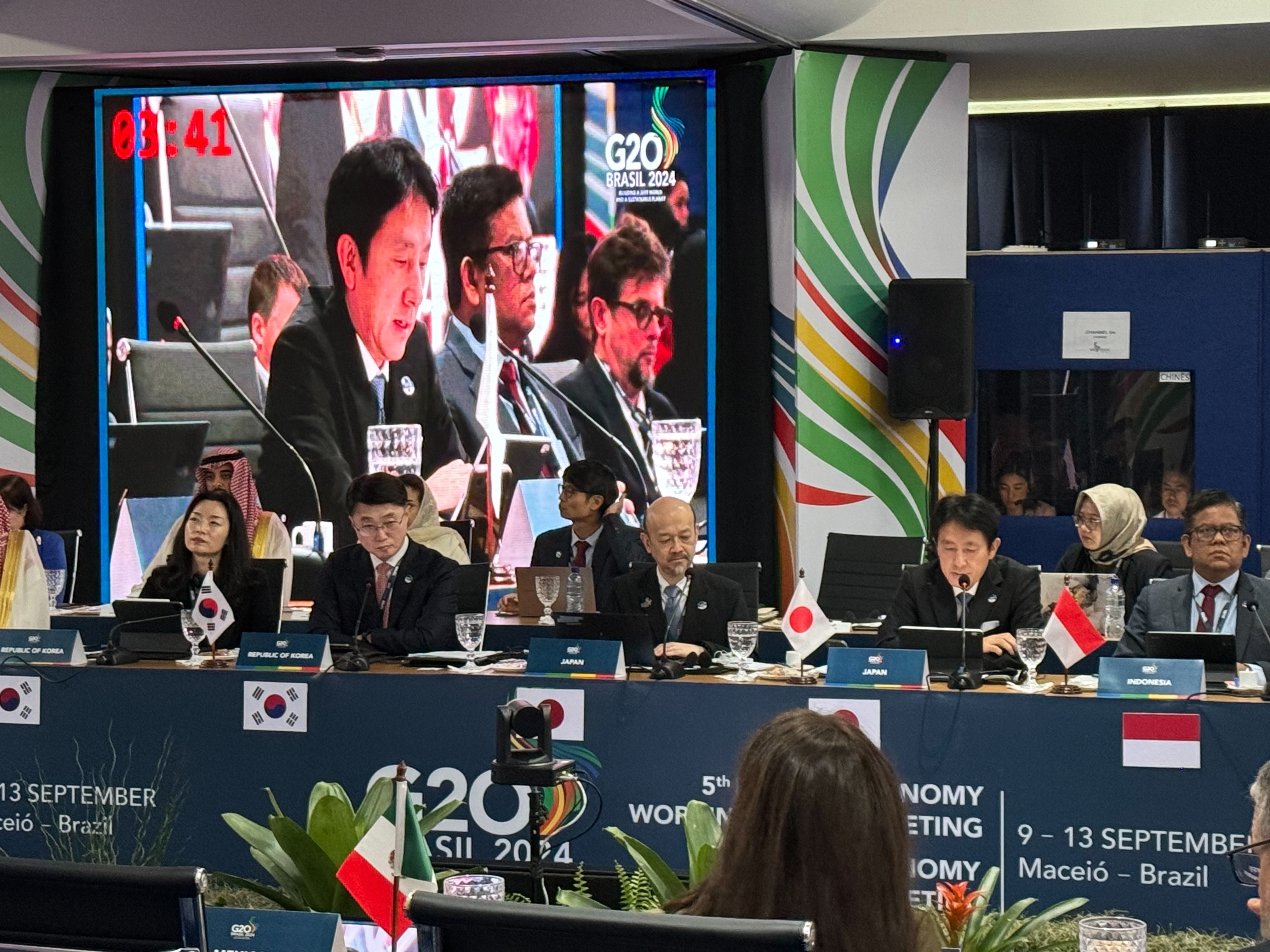
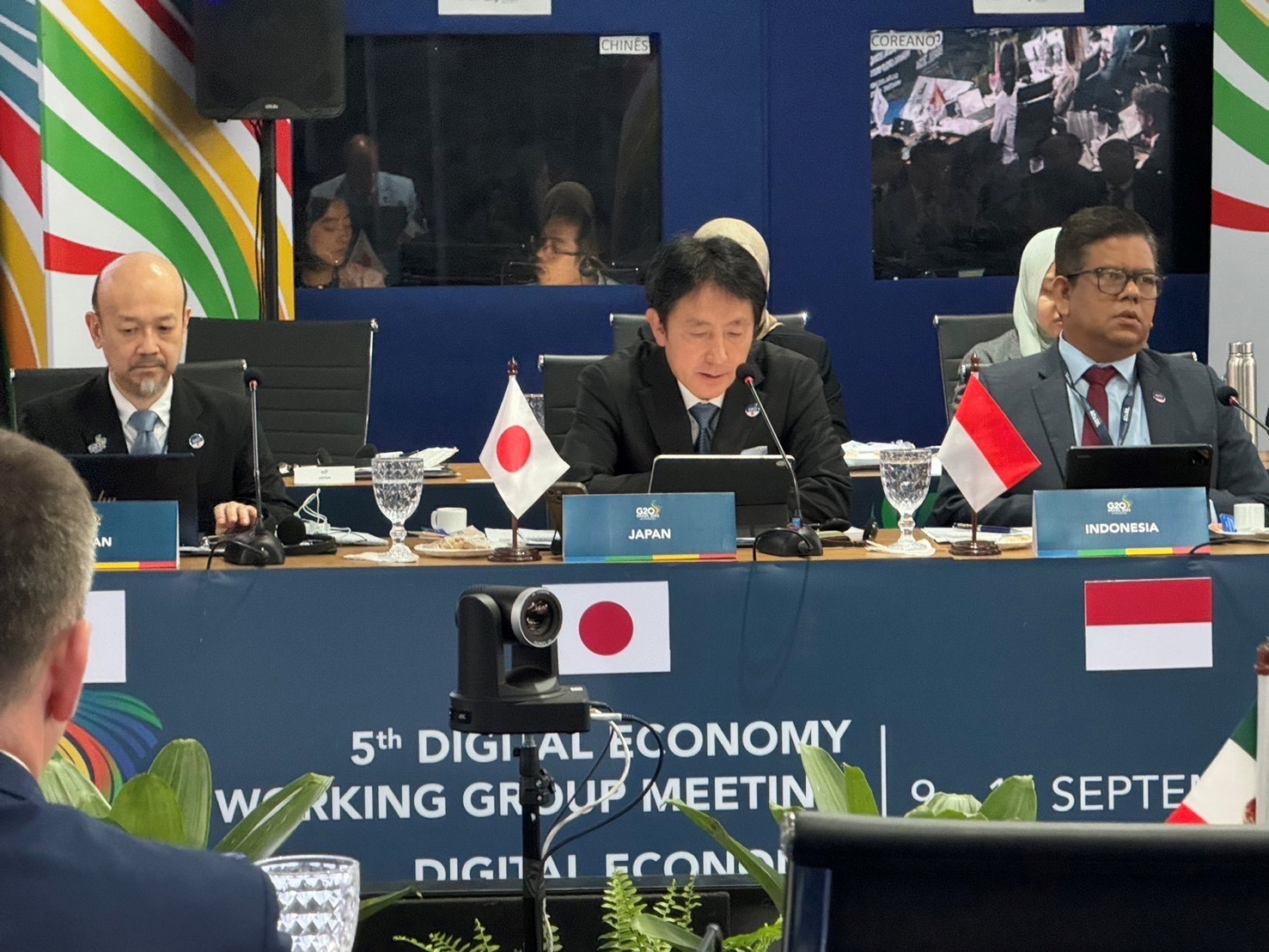
Ministerial Declaration
The G20 Digital Economy Ministers' Meeting Ministerial Declaration and Annex are as follows:
2. Bilateral Meetings
On September 12 and 13, bilateral meetings were held with ministers from G20 member countries.
1. Brazil
State Minister Ishikawa held a bilateral meeting with Brazilian Minister of State for Communications Juscelino Filho, who was serving as the G20 Presidency this year. Minister Filho expressed his appreciation for Japan's dedicated support for the G20 Outcome Document, and State Minister Ishikawa expressed his gratitude for the leadership as the G20 Presidency. These two ministers also confirmed that both countries will continue to cooperate to realize an inclusive digital society, based on the trust between the two countries, which will celebrate the 130th anniversary in 2025 of the establishment of diplomatic relations between the two countries.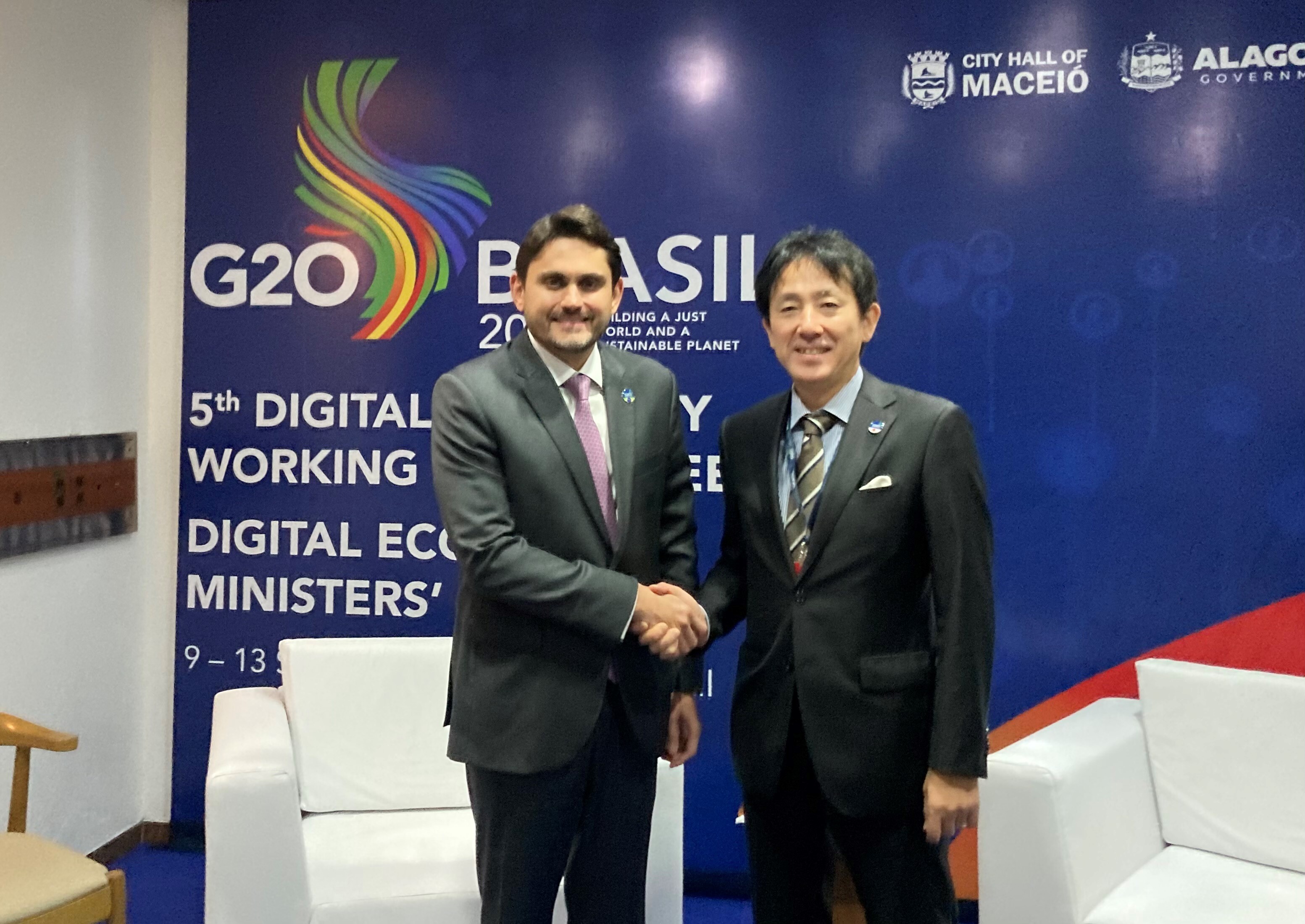
2. United States
State Minister Ishikawa held a bilateral meeting with U.S. Ambassador at Large for Cyberspace and Digital Policy Nathaniel Fick of the State Department to confirm cooperation for the G20 and next year's G7. Ambassador Fick expressed his gratitude for Japan's leadership on DFFT and the progress made with respect to the IAP. State Minister Ishikawa introduced Japan's efforts in the ASEAN region regarding the promotion of DFFT/data governance, and the minister and the ambassador confirmed future cooperation between the U.S. and Japan in promoting DFFT. They also exchanged opinions on countermeasures against disinformation and misinformation in both countries.
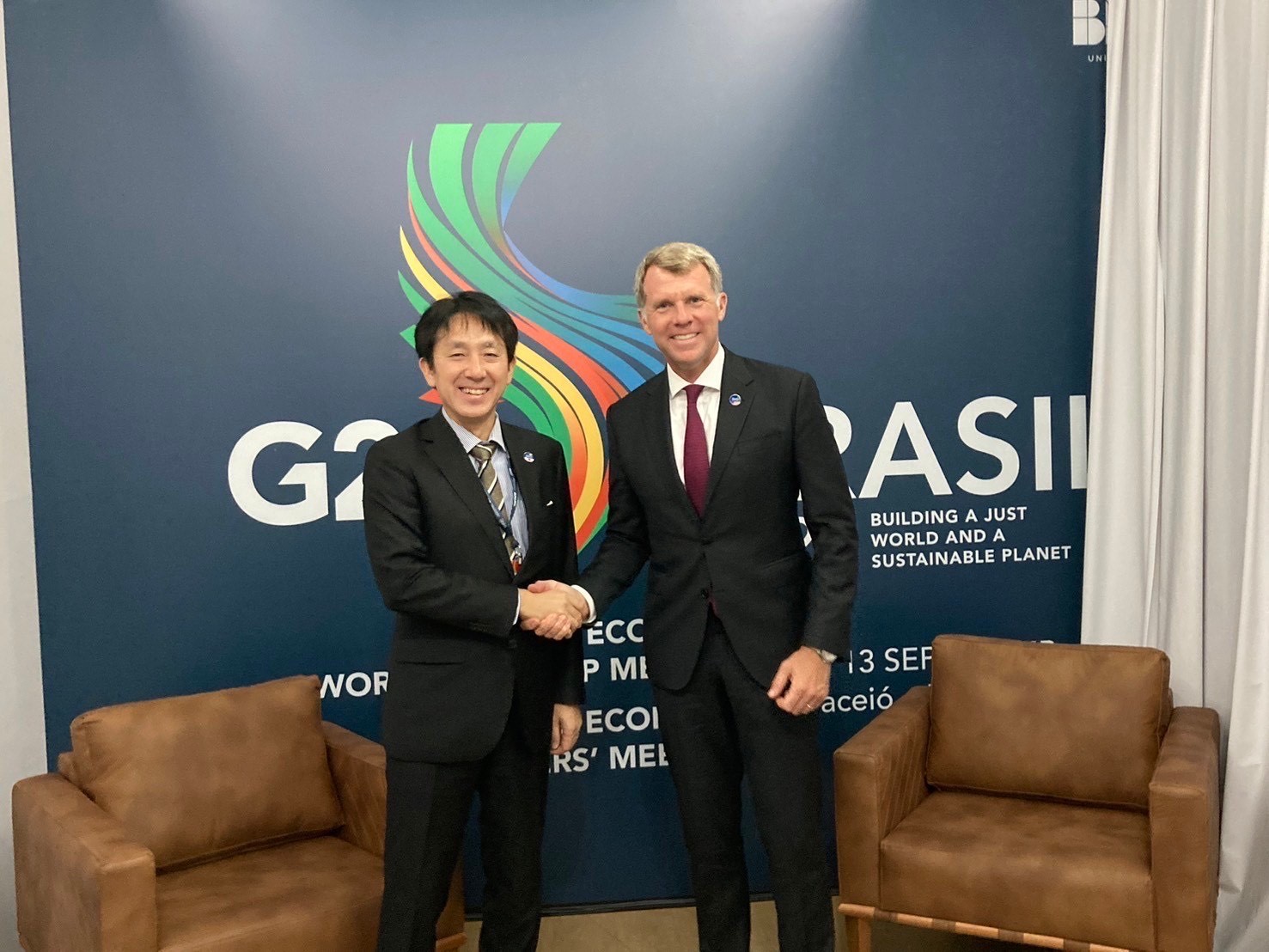
3. Norway
State Minister Ishikawa held a bilateral meeting with Norwegian Minister of Digitalisation and Public Governance Karianne Oldernes Tung. As non-English speaking countries with their own languages, the two ministers exchanged views on efforts to develop Large Language Model (LLM) for non-English languages, and how government digital services should be provided in an aging society to realize "No One Left Behind" (Human-friendly digitalized world), a mission shared by both countries.
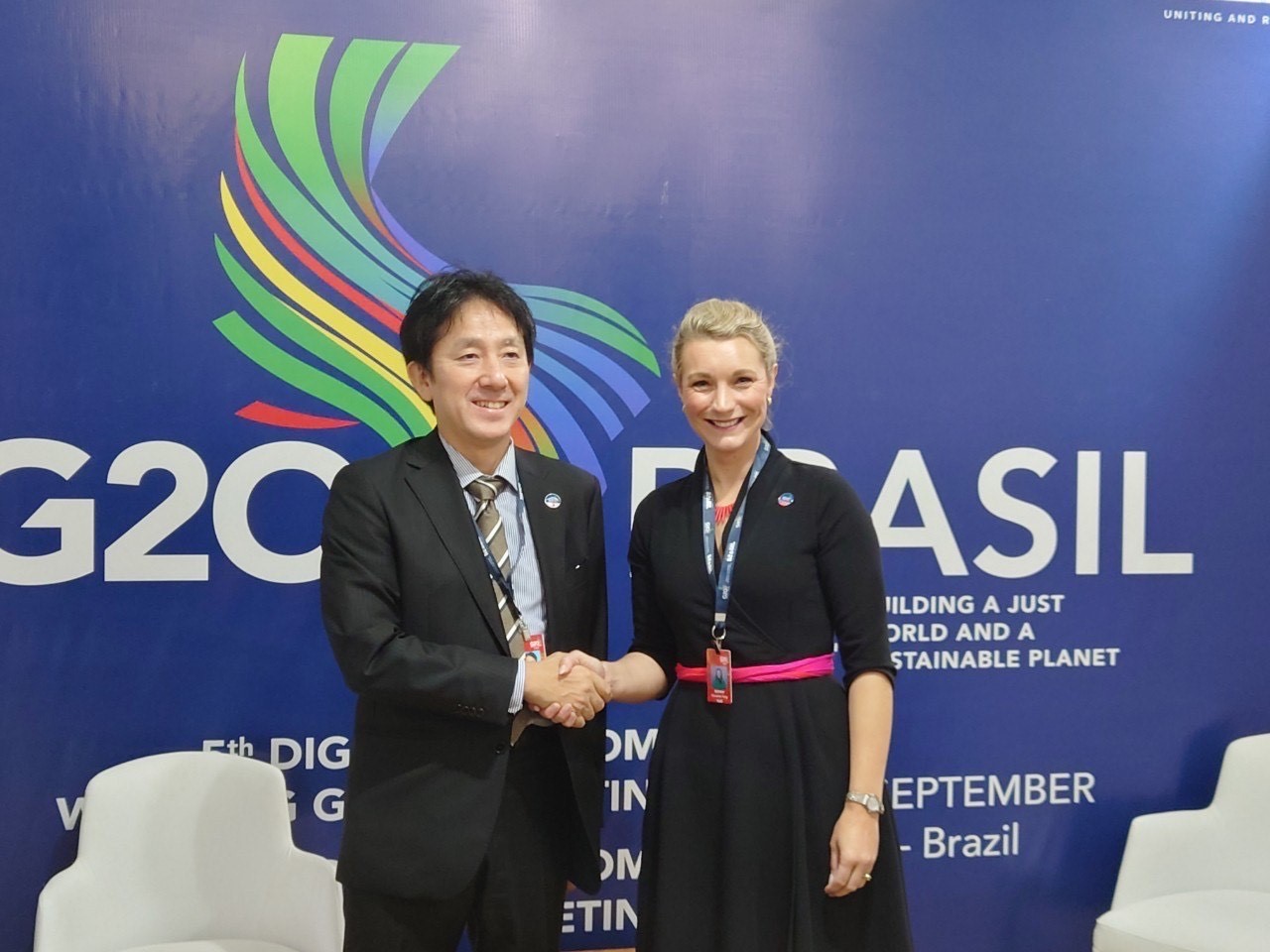
4. Canada
State Minister Ishikawa held a bilateral meeting with Alix Dostal, Associate Deputy Minister of Innovation, Science and Economic Development Canada. Canada will assume the G7 Presidency next year. State Minister Ishikawa shared Japan’s experience as G7 Presidency in 2023 and its initiatives on digital ID. Associate Deputy Minister Dostal expressed expectations for Japan's contributions to the G7 next year, and both sides confirmed their interest in continuing discussions on DFFT and the digitalization of supply chains.
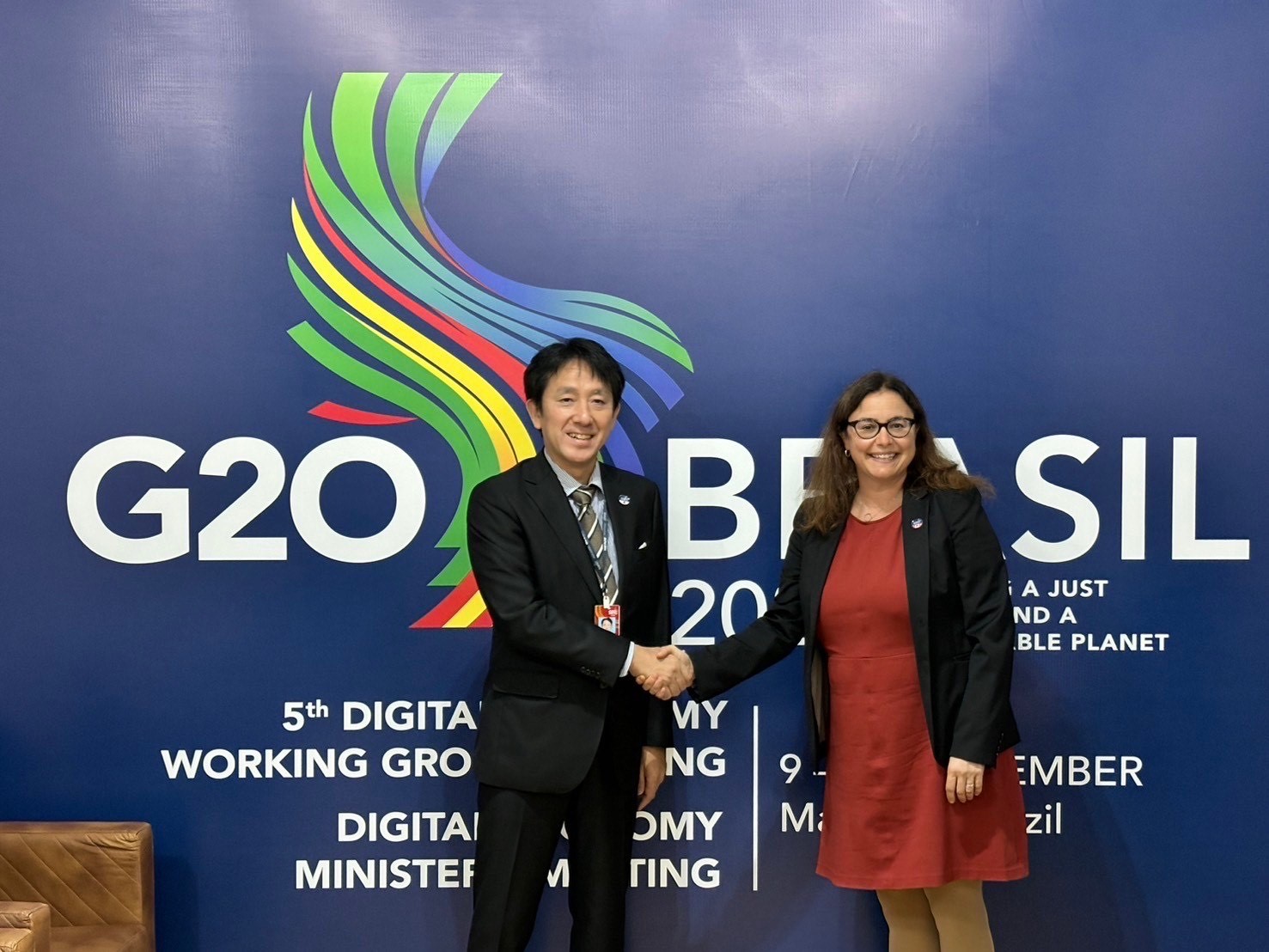
5. Denmark
State Minister Ishikawa held a bilateral meeting with Danish Minister for Digitalisation Caroline Stage Olsen at the venue of the ministerial meeting. State Minister Ishikawa explained Japan’s initiatives regarding the Individual Number Card, and Minister Olsen explained Denmark’s initiatives regarding NemID. They exchanged opinions on the importance of providing beneficial services to citizens based on digital IDs.
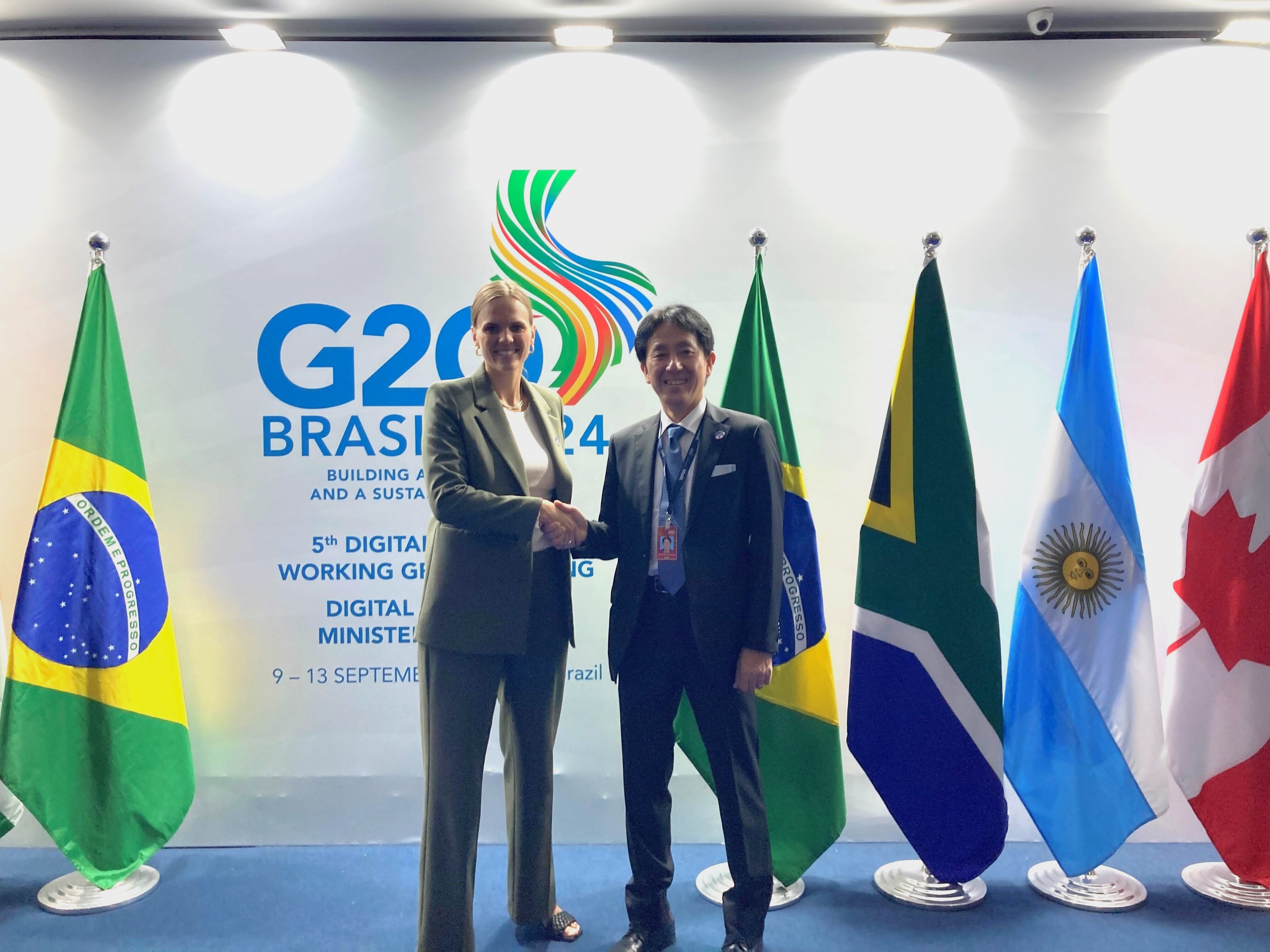
6. OECD
State Minister Ishikawa held a bilateral meeting with Deputy Secretary-General Ulrik Knudsen of the OECD at the venue of the ministerial meeting. Deputy Secretary-General Knudsen expressed his appreciation for Japan's contribution to the IAP. State Minister Ishikawa stated that it is important to further promote and strengthen the IAP to operetionalize DFFT as well as the efforts on data governance in the OECD. Deputy Secretary-General Knudsen said that that is a high priority initiative for the OECD. They confirmed that they will continue to cooperate with each other.
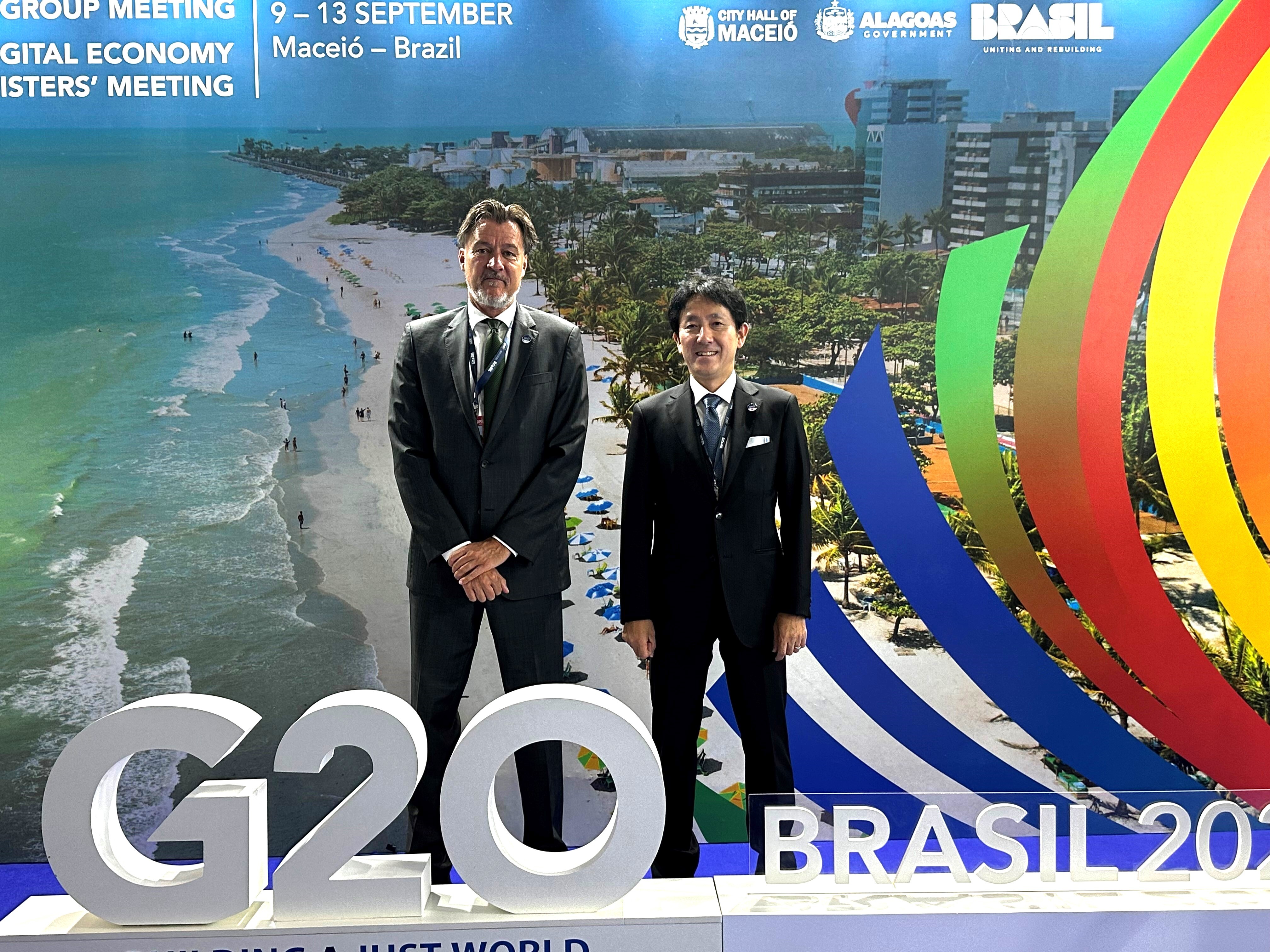
7. EU
State Minister Ishikawa held a bilateral meeting with Deputy Director General Renate Nikolay for Communications Networks, Content and Technology of the European Commission at the venue of the ministerial meeting. State Minister Ishikawa and Deputy Director General Nikolay confirmed that they will continue to cooperate in promoting DFFT and will steadily proceed with discussions on interoperable use cases for digital ID based on the Memorandum of Cooperation (MoC) on digital ID signed in April 2024.
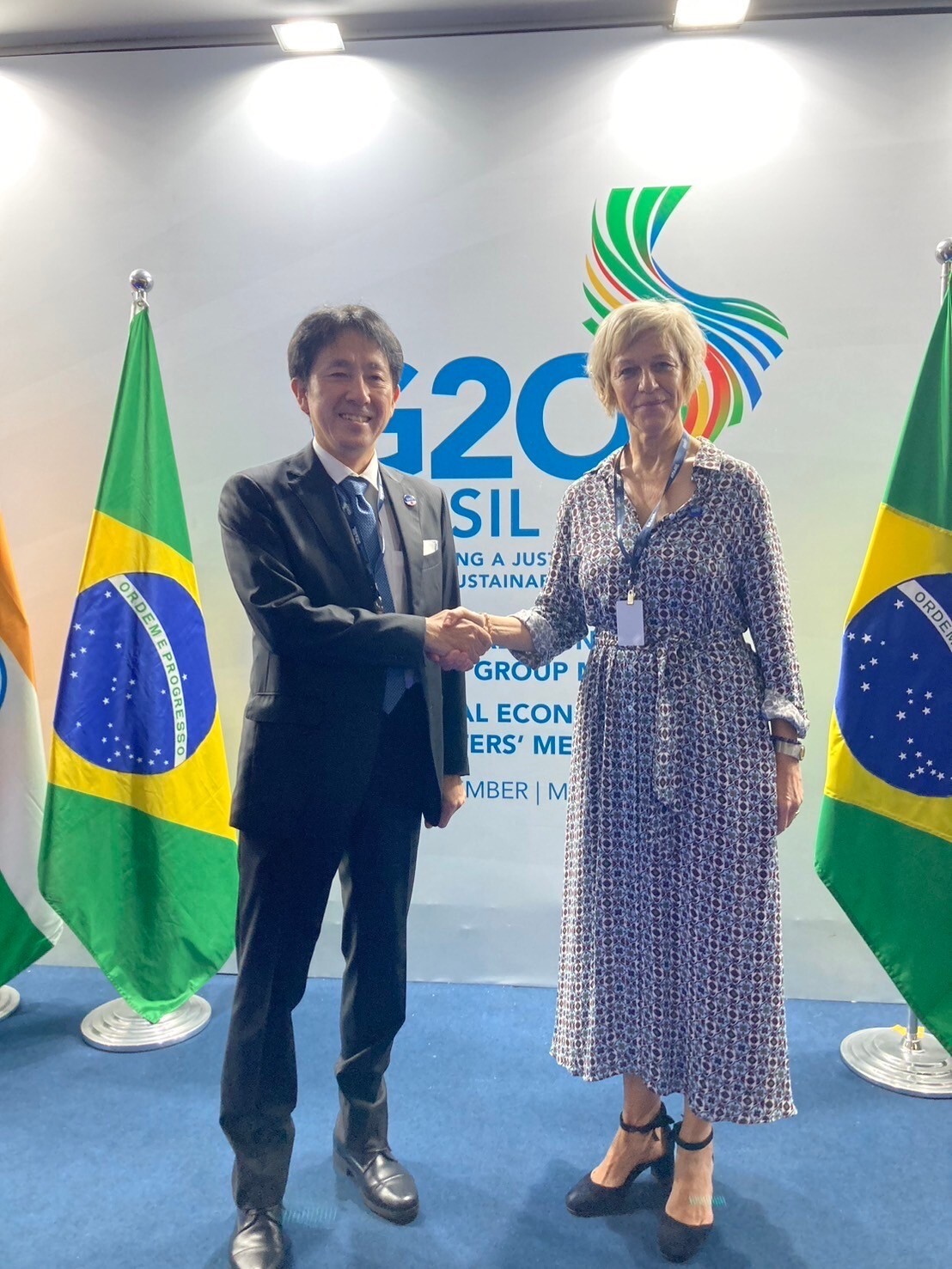
8. Germany
State Minister Ishikawa held a bilateral meeting with Dr. Volker Wissing, Federal Minister for Digital and Transport of Germany. State Minister Ishikawa thanked Minister Wissing for Germany’s support on DFFT and the Hiroshima AI Process at the G20 and/or G7. Minister Wissing said that Germany as a like-minded country would like to cooperate in further progress. They confirmed that the two countries will continue to cooperate with each other in the G20 and G7 in the future.
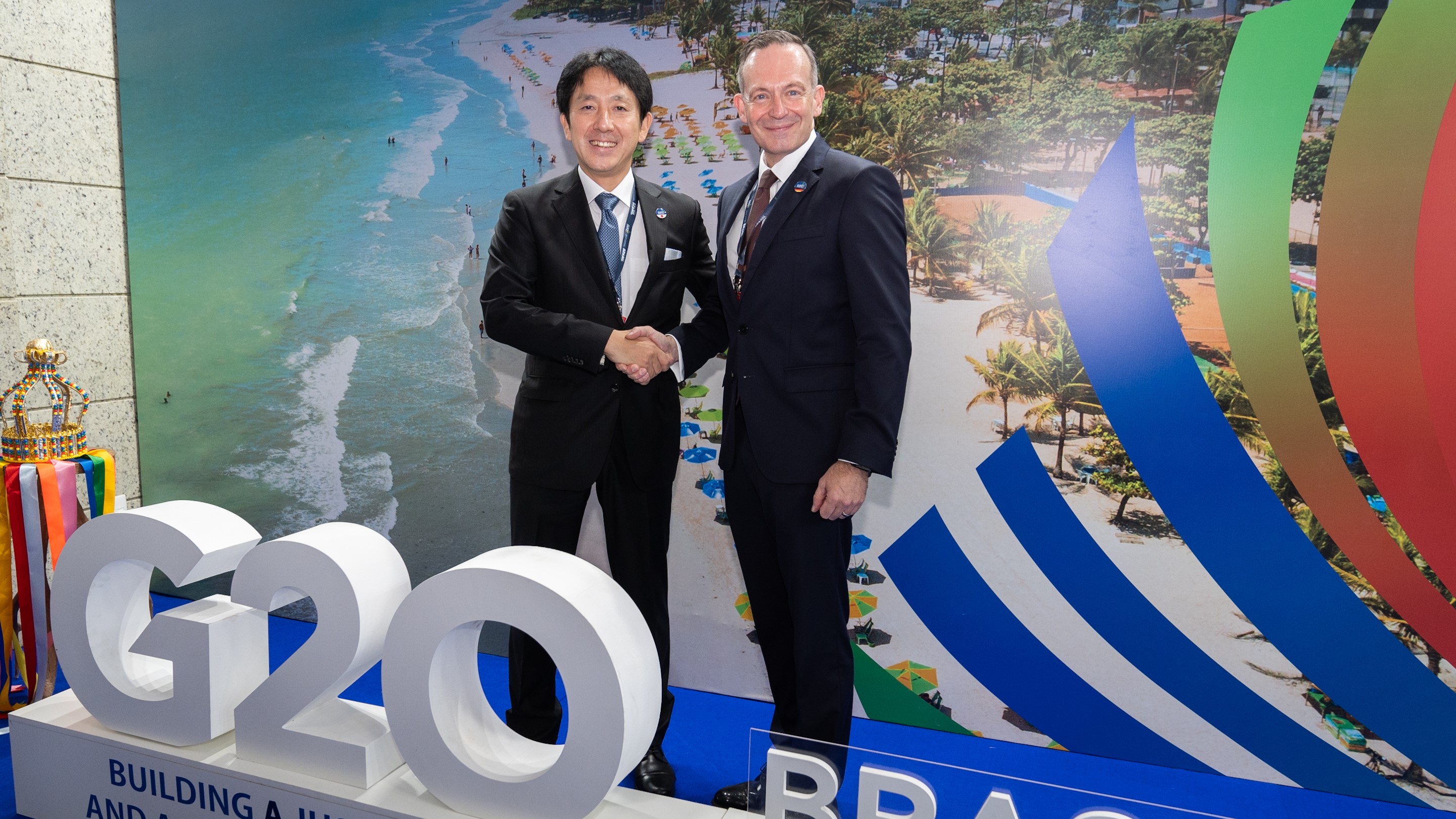
In addition, State Minister Ishikawa exchanged opinions at the venue of the G20 ministerial meeting with the following dignitaries: UK’s Parliamentary Under Secretary of State for AI and Digital Government in the Department for Science, Innovation and Technology Feryal Clark; Italy’s Deputy Minister of Enterprises and Made in Italy Valentino Valentini; French Ambassador for Digital Affairs Henri Verdier; Portuguese Minister of Youth and Modernisation Margarida Balseiro Lopes; Singaporean Minister of State Rahayu Mahzam; Turkish Minister of Industry and Technology Mehmet Fatih Kacir; Saudi Arabian Governor of the Digital Government Authority Ahmed Alsuwaiyan; African Union Director General Ngozi Okonjo-Iweala; South African Minister of Communications and Digital Technologies Mmoba Solomon Malatsi; and Nigerian Minister of Communications, Innovation and Digital Economy Bosun Tijani ; India Joint Secretary of Ministry of Electronics and Information Technology Sushil Pal; Korean Korean Director General of the Office of Network Policy, Ministry of Science and ICT Je Myung, Ryu and Indonesian Director General of the Ministry of Communication and Information Technology Ikhwan Nasution.